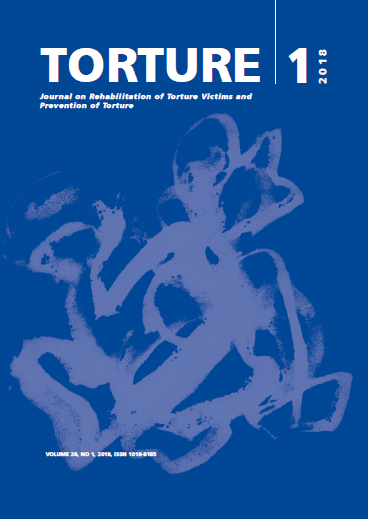The Chronic Traumatic Stress Framework: A conceptual model to guide empirical investigation and mental health treatment for refugees and survivors of torture
DOI:
https://doi.org/10.7146/torture.v28i1.105477Keywords:
Torture, refugees, PTSD, traumaAbstract
An increasing number of refugees and survivors of torture resettled in the United States are presenting to clinics for treatment related to trauma and postmigration difficulties. Although clinicians experienced in treating trauma with diverse populations may recognize the limitations of a PTSD diagnosis, one of the primary diagnoses received by refugees and survivors of torture remains post-traumatic stress disorder (PTSD). A variety of interventions exist (e.g., supportive, trauma specific, interdisciplinary including physical, social and psychological) for survivors of torture and trauma that move beyond this diagnosis, however, a unifying conceptual model is needed to guide treatment and further the empirical investigation and evidence base in this growing field. In this paper, we propose a broader biopsychosocial framework of the
impact of traumatic war events including the measurement of stress related to post migration living difficulties, and daily hassles while highlighting the importance of protective and risk factors. Intervention outcomes emphasize resilience, physical well-being, and mental well-being, along with traumatic stress symptoms. We describe Chronic Traumatic Stress (CTS) as an integrated and unifying framework which provides guidance for the growing number of providers conducting assessment andintervention with refugees and survivors of torture. We also highlight that this model is specifically designed for empirical testing.
Downloads
Published
How to Cite
Issue
Section
License
We accept that some authors (e.g. government employees in some countries) are unable to transfer copyright. The Creative Commons Licence Attribution-NonCommercial-NoDerivatives 4.0 International (CC BY-NC-ND 4.0) covers both the Torture Journal and the IRCT web site. The publisher will not put any limitation on the personal freedom of the author to use material contained in the paper in other works which may be published, provided that acknowledgement is made to the original place of publication.


